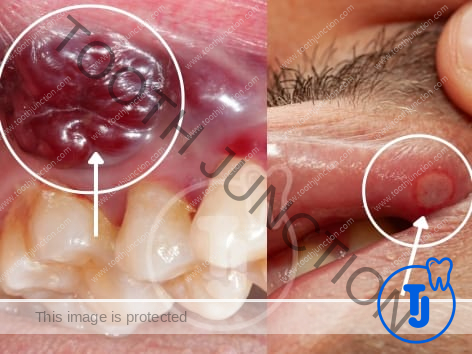Oral Cancer & Other Lesion
Early Detection Can Save More Than Just Your Smile
Your mouth can say a lot more than you think. Sometimes, it’s the first place to show signs of a deeper health issue—especially when it comes to oral cancer or suspicious lesions.
At Tooth Junction, we believe that early detection is the best protection. Our team is trained to recognize unusual changes in your mouth that could be pre-cancerous, cancerous, or related to other serious conditions
What Are Oral Lesions?
Oral lesions refer to abnormal changes in the tissues of your mouth. They can appear as:
White or red patches on the tongue, cheeks, or gums
Persistent ulcers or sores that don’t heal
Lumps, growths, or thickened areas in the mouth
Bleeding spots or painful areas without a clear reason
Difficulty in chewing, swallowing, or speaking
While many lesions are harmless, some can be early signs of oral cancer and should never be ignored.

Common Types of Oral Lesions We Check For:
Leukoplakia: White patches that can sometimes turn cancerous
Erythroplakia: Red, velvety patches with a higher risk of malignancy
Oral Ulcers: Persistent sores that may be linked to systemic conditions
Lichen Planus: A chronic inflammatory condition with white lacy patterns
Fibromas / Papillomas: Benign growths often caused by trauma or viral infections
Oral Cancer: Malignant lesions usually affecting the tongue, floor of the mouth, lips, or cheeks
Warning Signs to Watch Out For
A sore or ulcer that doesn’t heal
A lump or swelling in the mouth, face, or neck
Difficulty swallowing or moving your jaw
Numbness or tingling in the lips or tongue
Persistent bad breath without cause
Voice changes or unexplained bleeding
Diagnosis & Evaluation at Tooth Junction
At Tooth Junction, we offer thorough oral screenings during your routine dental visits. If we suspect anything unusual, we may recommend:
Visual and tactile examination of the oral tissues
Intraoral photography to monitor changes over time
Biopsy or specialist referral if necessary for accurate diagnosis
Tobacco and lifestyle counselling if you’re at higher risk
We work closely with oral pathologists and oncologists to ensure you receive the right diagnosis and the right care at the right time.
Why Early Detection Matters ???
Oral cancer is one of the few cancers that’s visibly detectable in its early stages, which makes routine screening incredibly powerful. When caught early, oral cancer has an excellent survival rate and requires less invasive treatment.
Our Commitment
Whether it’s a harmless lesion or something more serious, we believe every concern deserves attention. Our goal is not just to treat—but to educate, monitor, and empower you to take charge of your oral health.
FAQs
-Alcohol consumption.
-Human papillomavirus (HPV) infection.
-Poor oral hygiene.
-Prolonged sun exposure (for lip cancer).
-Family history or genetic factors.
-White or red patches in the mouth.
-Unexplained bleeding or numbness.
-A lump, bump, or thick area inside the mouth.
-Pain while swallowing or speaking.
-Loose teeth without gum disease.
Other Treatments
- All On 4 & 6 Implants
- Bad Breath Treatment
- Braces Treatment
- Ceramic Braces
- Dental Crown & Bridge
- Dental Filling
- Dental Implants
- Dental Veneers
- Dentures
- FMR
- Fluoride & Dental Sealants
- Gum Treatment
- Invisible Braces
- Oral Cancer
- Overdenture
- Preventive Orthodontics For Kids
- Root Canal Treatment
- Self Ligating Braces
- Smile Makeover
- Single Sitting Root Canal Treatment
- Teeth Cleaning
- Teeth Whitening
- Wisdom Tooth Removal
